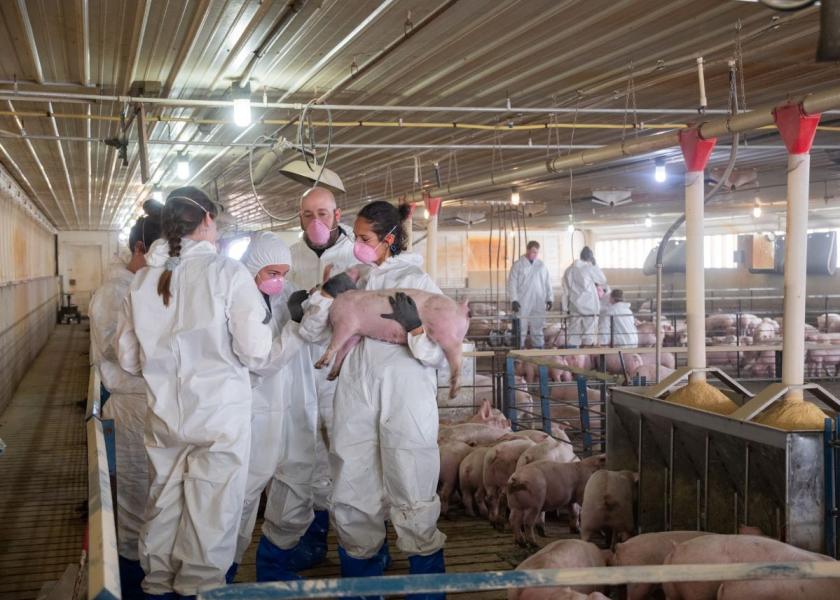How Iowa State University is Developing the Future of Production Animal Medicine

A recent American Veterinary Medical Association study found less than 4% of veterinarians nationwide predominantly practice production animal medicine.
That's why Production Animal – Veterinary Early Acceptance Program (PA-VEAP), a joint program between the College of Veterinary Medicine and the Department of Animal Science in Iowa State University’s College of Agriculture and Life Sciences, has been established with the goal of educating more veterinarians who wish to practice production animal medicine.
PA-VEAP will recruit and retain future veterinarians to practice production animal medicine, primarily in underserved areas in Iowa and throughout the country, according to an Iowa State University release.
“Currently, there is a nationwide shortage of veterinarians in all sectors of the profession,” Dan Grooms, the Dr. Stephen G. Juelsgaard Dean of Veterinary Medicine, said in a release. “With the PA-VEAP program, we are helping to address the critical need for veterinarians to support Iowa’s $32 billion animal agriculture industry.”
An undergraduate program for students majoring in animal science or dairy science at Iowa State, PA-VEAP requires students must also be pursuing completion of an undergraduate certificate in beef cattle, dairy cattle, poultry or swine production management.
“The declining number of veterinarians supporting the production animal industry poses a significant food security threat,” Justin Brown, assistant professor of veterinary diagnostic and production animal medicine and the director of the program, said in a release. “This shortage also presents an opportunity for students interested in production animal medicine to become a resource for underserved areas.”
To launch the program, the first round of applications are due in late December 2023. Initially, PA-VEAP will enroll 10 students per year. Once enrolled in the program, students will be assigned a program advisor from both the Department of Animal Science and the College of Veterinary Medicine.
"This program provides students with a demonstrated interest in production animal medicine a community of support and mentorship while gaining hands-on training and industry experience through the animal science curriculum," Jodi Sterle, associate chair of teaching and undergraduate teaching coordinator in the animal science department, said in a release. "By participating in this program, students can gain valuable insights into the opportunities and challenges facing production animal veterinarians, and prepare themselves for the rigorous veterinary curriculum, as well as a successful career.”
Eligible undergraduate students completing their third semester post-high school (i.e. sophomores) with a minimum grade point average of 3.4 are encouraged to apply for the inaugural class. Undergraduate students entering Iowa State directly from high school can apply to the program after completing their second semester at Iowa State.
"Providing students with hands-on production animal experience is not only beneficial for their individual growth and development, but it also serves a greater purpose in training the next generation of veterinary professionals to serve agriculture across the country," Jason Ross, animal science department chair, said in a release. "By partnering with the College of Veterinary Medicine, we have created a program where students gain valuable skills and mentorship while preparing to contribute to the advancement of animal health and welfare."
To remain in the program, students must earn a minimum grade point average of 3.4 while completing all prerequisite courses for admission into the College of Veterinary Medicine. Students must also complete a minimum of 300 hours of approved food animal experiences, as well as the undergraduate certificate. Successful completion of the program will result in admission to Iowa State’s College of Veterinary Medicine (following review and approval by the CVM admissions committee), the release said.
More information on the application process and student eligibility is available on the PA-VEAP webpage.
Read More:







